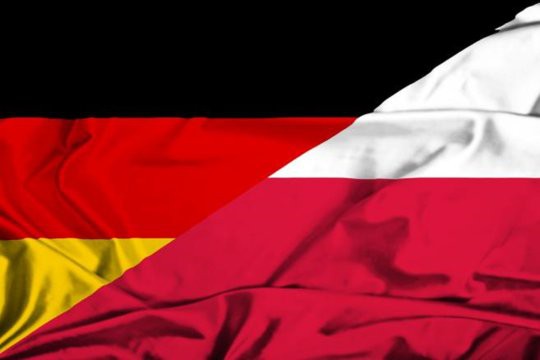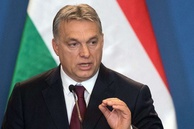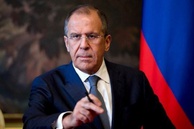Warsaw's claims that Germany is not doing enough in terms of military assistance to Ukraine, coupled with a demand for financial reparations for the damage caused to Poland during World War II all stem from Poland's desire to squeeze Germany out of the European political stage. (1)
At the heart of this is the centuries-old struggle between the Germans and Poles for leadership in the region, something that the Polish historian Oskar Halecki would later call Central and Eastern Europe (CEE). Historically, the weakening of Germany has always meant the strengthening of Poland, and the other way round. (2) Now, in order to offset the German influence, Warsaw is edging as close as possible to the Anglo-Saxon powers - the United States and Great Britain. In terms of military assistance to the Kyiv regime, the Anglo-Saxons are ahead of the rest of the NATO countries. Working hand in glove with them, Poland never misses a chance to portray Germany as an undeserved upstart, unable to perform the role of the European leader that it is trying to take on.
Poland demands that the Germans provide Kyiv with warplanes and even more tanks. If Germany fails to do this, Warsaw will certainly try to present it as a sluggish military-political actor in a stark contrast with an energetic Poland, which is ready to supply Kyiv with everything it needs. Even if Berlin meets Poland's demands, Warsaw will surely make it look like it happened entirely thanks its efforts, which, again, will indirectly underscore Germany's foreign policy lethargy.
Poland emphasizes in every possible way that Germany has neither the political will nor military-industrial and economic power to be Europe’s one and only leader. At the same time, the Poles do not forget to inject a moral angle into this discourse, demanding that the Germans pay for the atrocities committed by the Nazi soldiers on Polish soil. As a result, we have a situation when, according to Warsaw, Germany has neither the moral right to be the leader of Central and Eastern Europe, nor the ability to top the list of Ukraine’s main military suppliers.
Simultaneously, Poland is ramping up its military-industrial potential and developing cooperation with Ukrainian companies in order to better stand up to the Germans. (3)
It is no coincidence that the escalation of the tacit competition between Warsaw and Berlin for influence in Europe comes against the backdrop of the Ukrainian crisis. (4) Polish geopolitical thinkers (Roman Dmowski, Adolf Bochenski, Władysław Gizbert-Studnicki, Stanislav Tsat-Matskevich, etc.) have always viewed independent Ukraine as a likely ally of Germany. The idea that with insufficient Polish control over Ukraine Kyiv inevitably becomes either Russian or German is at the heart of Warsaw’s eastern policy. Warsaw saw signs of Kyiv's pro-German orientation during the presidency of Petro Poroshenko (2014-2019). The arrival of Volodymyr Zelensky in Bankovaya was perceived in Warsaw as a chance to reorient Ukraine from the pro-German to the pro-Polish path. Warsaw is thus trying to avoid a situation where Berlin and Kyiv resolve political and other issues over Poland's head. This alliance also increases the strategic depth of the anti-Russian buffer between Russia and Poland.
At the same time, by demeaning the authority of Germany, Poland is trying to pull the rug from under the feet of the future geopolitical axis Paris-Berlin. The Franco-German alliance has not built up enough muscle yet as the foreign policy preferences of Paris and Berlin do not entirely coincide (Paris is trying to strengthen its presence in Africa, while Berlin - in all of Europe), but the alliance still has potential in the future. First of all, a Franco-German partnership undermines the hegemony of Washington and London in the EU. Secondly, it complicates, albeit not fatally, the interaction between the US and the UK with their Eastern European allies. Poland traditionally entered into an alliance with France against Germany and Russia, or allied with Germany against France and Russia. Now Poland is joining hands with Washington and London against France, Germany and Russia, although for entirely different geopolitical reasons.
The hypothetical Polish-Ukrainian (con)federation (5) is directed not only against Russia, but also against the Franco-German alliance. If a "Polish-Ukrainian state" is created, Europe's geopolitical center of gravity will shift from France and Germany to Poland, and Berlin will have to forget about European leadership. At the same time, a (con)federative structure will allow Polish policy to remain flexible on the eastern track and, depending on the geopolitical situation, choose what is best for it: either to "pull" Ukraine closer to itself to strengthen the Polish-Ukrainian bridgehead against Russia, or "push" it away to ensure a strategic buffer separating Poland and Russia. By manipulating the notorious “Russian question,” Warsaw, helped by the Anglo-Saxons, will be able to play a much greater role not only in pan-European politics, but, indirectly, in German and French politics as well.
The views of the author are his own and may differ from the position of the Editorial Board.
--------------------------------------------------------------------------
1) https://m.gazeta.ru/politics/2023/03/05/16348507.XHTML
2) http://infobrics.org/post/38340/
3) https://kresy.pl/wydarzenia/mesko-razem-z-ukrainska-firma-wyprodukuje-amunicje-czolgowa/
4) https://lenta.ru/news/2023/03/25/poland_germany/
5) https://interaffairs.ru/news/show/34967
read more in our Telegram-channel https://t.me/The_International_Affairs

 10:17 01.06.2023 •
10:17 01.06.2023 •



























